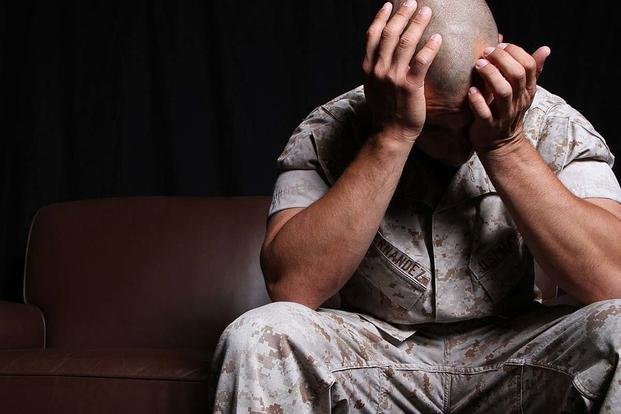VA Expands Groundbreaking Research Into Psychedelic Therapy
The Department of Veterans Affairs has confirmed it is expanding psychedelic-assisted therapy trials for veterans diagnosed with post-traumatic stress disorder(PTSD), treatment resistant depression, and anxiety disorders.
Nine VA facilities, in the Bronx, Los Angeles, Omaha, Palo Alto, Portland (Oregon), San Diego, San Francisco, West Haven, and White River Junction; are participating in the multi-year studies, each designed to test the safety and clinical impact of psychedelic compounds used under strict supervision.
VA Press Secretary Pete Kasperowicz told Military.com the work is proceeding under “strict safety and regulatory procedure,” noting that all studies involve substances still listed under Schedule I of the Controlled Substances Act (CSA).
“VA’s work on psychedelics is at an early stage and results from these trials will be available in the years to come,” Kasperowicz said. “This research is just one part of VA’s comprehensive mental health and suicide prevention efforts.”
Part of a Broader Push to Find Better PTSD Treatments
For many veterans, existing PTSD treatments, such as cognitive processing therapy or medication can help manage symptoms but don’t always resolve the underlying trauma.
That challenge has pushed VA researchers to explore new models of care. In 2024, the VA announced funding for MDMA- and psilocybin-assisted therapy studies, marking the first time the agency directly supported psychedelic research for veteran mental health.
The new expansion builds on that foundation. Each site will recruit participants based on specific diagnostic criteria and treatment history. Some trials focus on combat-related PTSD, while others include veterans with depression or generalized anxiety disorder who have not responded to standard therapies.
“The goal is not to replace traditional care,” one VA research summary explains, “but to determine whether psychedelic-assisted therapy can enhance recovery for patients who haven’t improved with existing options.”
How Psychedelics May Work in Therapy
The compounds under study, primarily MDMA and psilocybin, are being used alongside structured psychotherapy sessions led by trained clinicians. Veterans receive preparatory counseling before dosing sessions, followed by integration therapy to help process their experiences.
Dr. Rachel Yehuda, director of PTSD Research at the Bronx VA and a key figure in trauma studies at the Icahn School of Medicine at Mount Sinai, has emphasized that the therapy’s effectiveness depends on its structure, not just the compound.
In a 2020 commentary published in Neuropsychopharmacology, Dr. Rachel Yehuda and colleagues noted that MDMA-assisted psychotherapy may help patients revisit traumatic experiences in a state of emotional safety and openness, potentially improving how trauma memories are processed.
Such effects remain under investigation, but early trials from institutions like Johns Hopkins University and the Multidisciplinary Association for Psychedelic Studies (MAPS) have reported significant symptom reductions for some participants with chronic PTSD.

Strict Oversight and Federal Coordination
Because the substances remain federally controlled, each study is conducted under a Schedule I research license, approved and monitored by both the Food and Drug Administration (FDA) and the Drug Enforcement Administration (DEA).
All facilities must meet stringent storage, handling, and documentation standards. Therapists receive specialized training, and each dosing session includes medical monitoring and psychological support.
The VA says its research teams remain in close contact with FDA and DEA officials throughout the process to ensure compliance and participant safety.
This level of oversight reflects the balance between innovation and regulation. Psychedelics are still federally restricted, but the FDA has granted “Breakthrough Therapy” status to several compounds under investigation, recognizing their potential to address unmet medical needs.
A Careful Step Forward
The VA’s move mirrors growing bipartisan interest in psychedelic medicine. In recent years, members of Congress from both parties have supported increased funding for veteran-focused mental health research, including novel therapies that show promise in early trials.
Still, VA officials emphasize that this is not an endorsement of psychedelics as approved treatments. Every study remains experimental, and it will take years before researchers can determine whether these therapies are safe, effective, and scalable for widespread use within the VA system.
VA officials emphasized that the research remains in early stages and is being conducted cautiously, guided by scientific oversight and the agency’s mission to improve veteran health.
For veterans who have cycled through multiple therapies without relief, the research represents cautious hope, not hype, but the possibility of progress.

What Comes Next
The VA expects Phase II trial data to begin emerging within the next few years, though each site follows its own timeline. Future phases could include larger participant groups and comparisons between different therapeutic models.
If the outcomes remain positive, VA leaders could pursue FDA fast-track consideration, similar to how the agency has advanced other high-impact treatments.
For now, the focus remains on conducting rigorous, transparent studies that meet both scientific and ethical standards. Each trial will contribute to a growing body of evidence on how and whether psychedelic-assisted therapy can safely fit within mainstream mental health care for veterans.
The Final Word
The VA’s research into psychedelics is still in its early stages, but it represents one of the most significant efforts to rethink how combat trauma is treated. The work spans science, regulation, and moral responsibility, a reminder that innovation in veteran care must always be matched by caution and credibility.
If successful, these trials could reshape the way PTSD is understood and treated not just within the VA, but across all mental health care systems.
Resources for Veterans
Veterans seeking information or support for PTSD can visit the VA’s official resource center. The site includes self-assessment tools, treatment options, and information on how to connect with a VA mental health provider or Veterans Crisis Line.
Sources
• U.S. Department of Veterans Affairs (Press Secretary Pete Kasperowicz)
• Federal Register
• Neuropsychopharmacology
• FDA.gov
• DEA.gov















